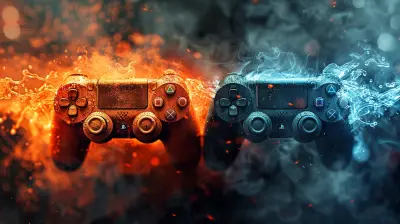The Psychology of Team-Based Play in Multiplayer Games
4 June 2025
Gaming has come a long way since the single-player days of Pong and Tetris. These days, multiplayer games dominate the scene, with team-based gameplay taking center stage. Titles like League of Legends, Overwatch, and Among Us live and breathe teamwork. But have you ever stopped to think about why we crave these team-based experiences so much? It turns out, there’s some fascinating psychology behind why we enjoy working (or battling) with others in multiplayer games. Let’s dive in.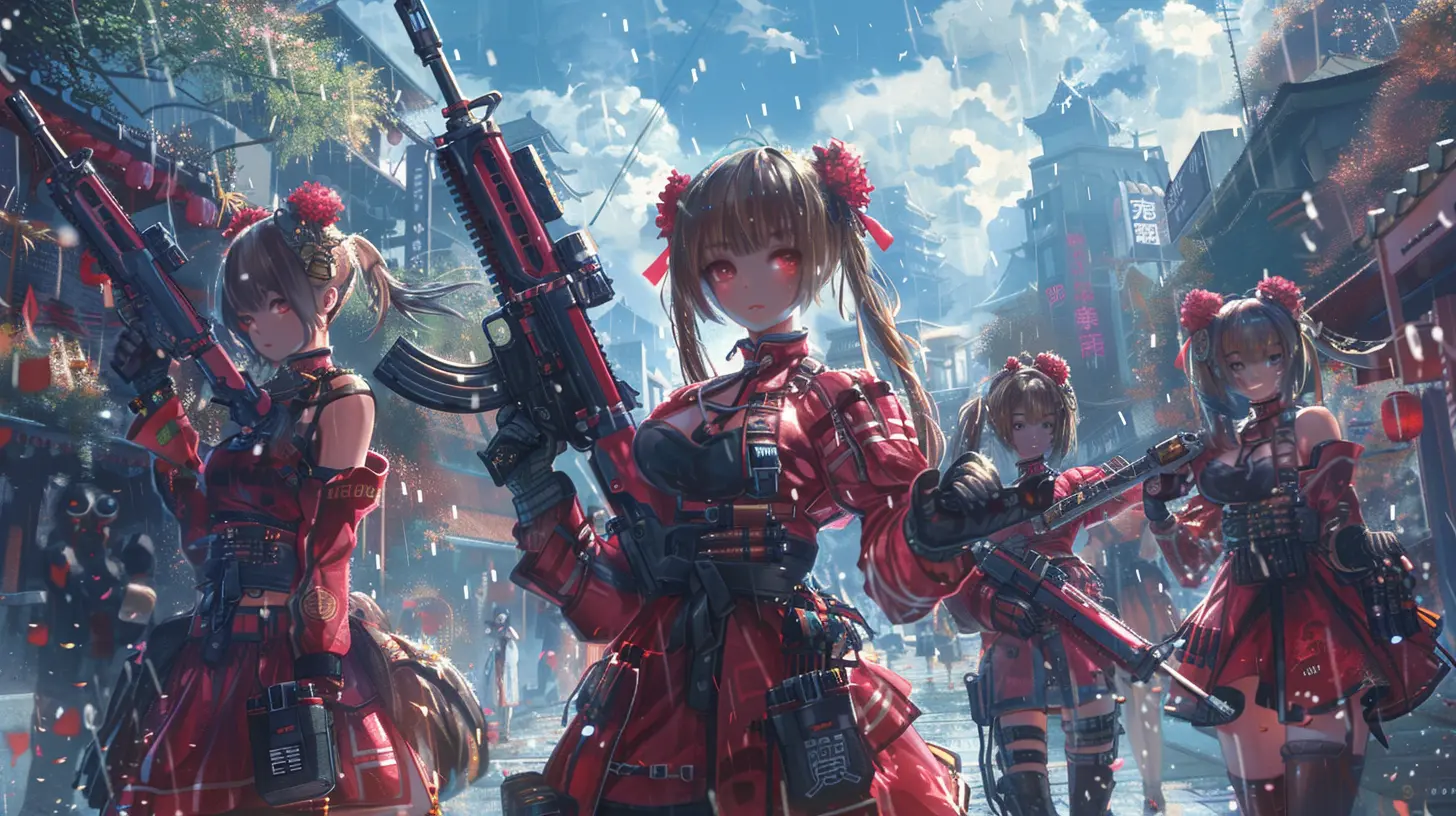
The Social Connection: More Than Just Winning
At its core, humans are social creatures. We thrive on connection and interaction, and multiplayer games are the modern-day campfire where people gather to bond. Playing on a team scratches an itch for collaboration and camaraderie that solo gaming just doesn’t always meet.Think about it: Winning a match in a team-based game isn’t just about racking up kills or capturing the objective. It’s about shared goals and the mutual rush of pulling off a well-coordinated strategy. That feeling of working together to achieve something? It’s like nailing a group project in school—but way more fun.
Why Do We Seek Out Teamwork?
There’s something deeply rewarding about being part of a team. Here’s why:1. Sense of Belonging
Being part of a team fulfills our need to belong. Whether you're healing your teammates in Overwatch or covering your buddy in Call of Duty, you feel like you’re part of something bigger. It’s like being on a sports team but without the sweat.
2. Shared Achievements
Who doesn’t love celebrating a win? When your squad pulls off an impossible comeback, the joy is amplified because you’re sharing it with others. Wins feel sweeter and losses feel less bitter when you’re in it together.
3. Social Identity
Ever notice how some people proudly call themselves a "support main" or a "sniper god"? That’s social identity at work. Your role in a team gives you a sense of who you are within the game, and that’s incredibly satisfying.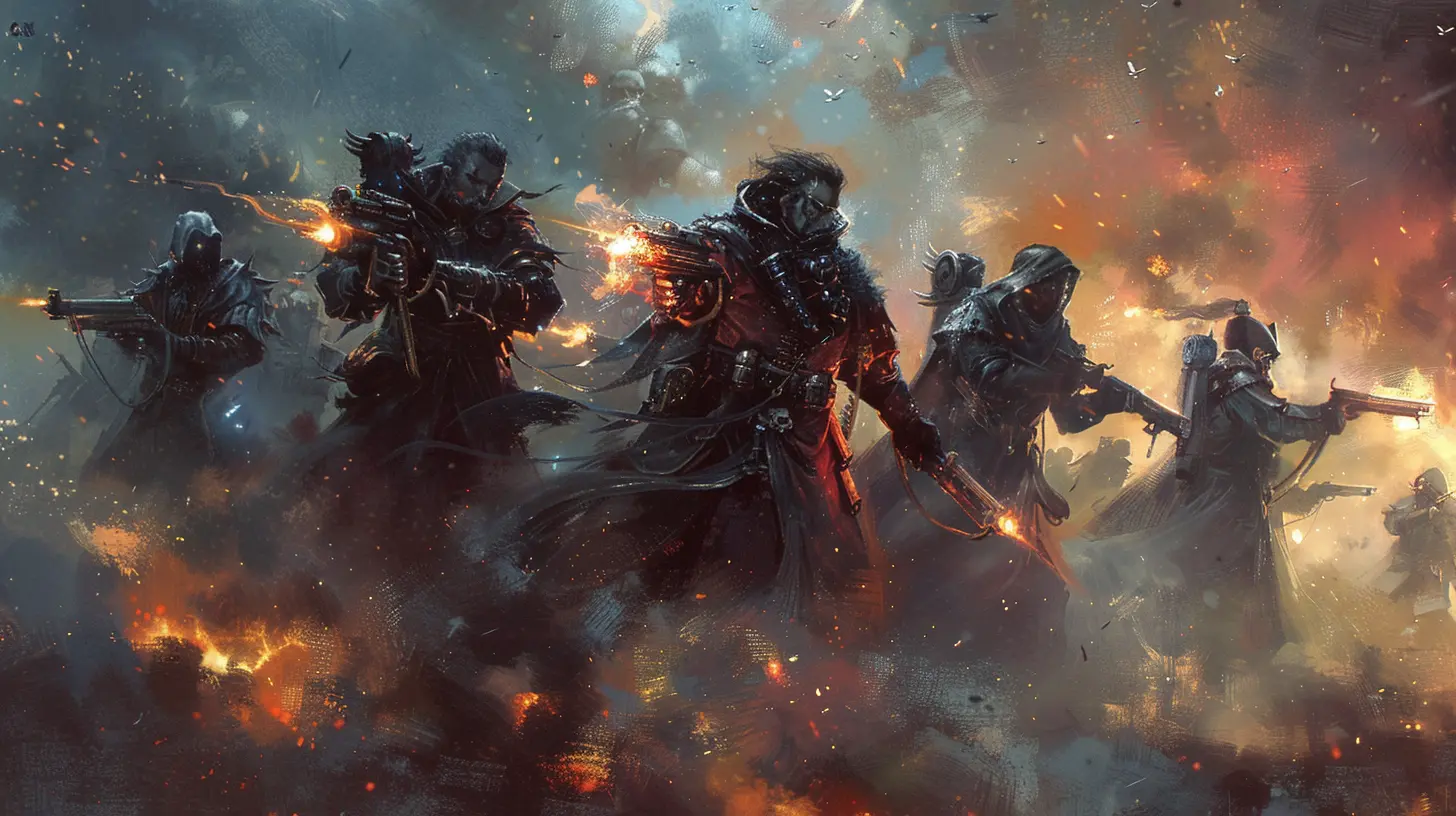
The Role of Communication: Talking the Talk
No great team-based game works without solid communication. Whether you're calling out enemy positions, setting up an ambush, or just hyping up your team, communication is key. Heck, even the best strategies crumble without it.The Science Behind It
When you communicate, your brain releases oxytocin, often called the “bonding hormone.” This chemical makes you feel closer to your teammates, even if you’ve never met them in real life. That’s why gaming with good communicators feels smoother, more rewarding, and just plain better.Toxicity: The Double-Edged Sword
Of course, not all communication is sunshine and rainbows. The competitive nature of team-based play can sometimes bring out the worst in people—your so-called “toxic teammates.” But even that, in a strange way, highlights how emotionally invested we get in these games. It’s proof that team dynamics run deep in our psyche.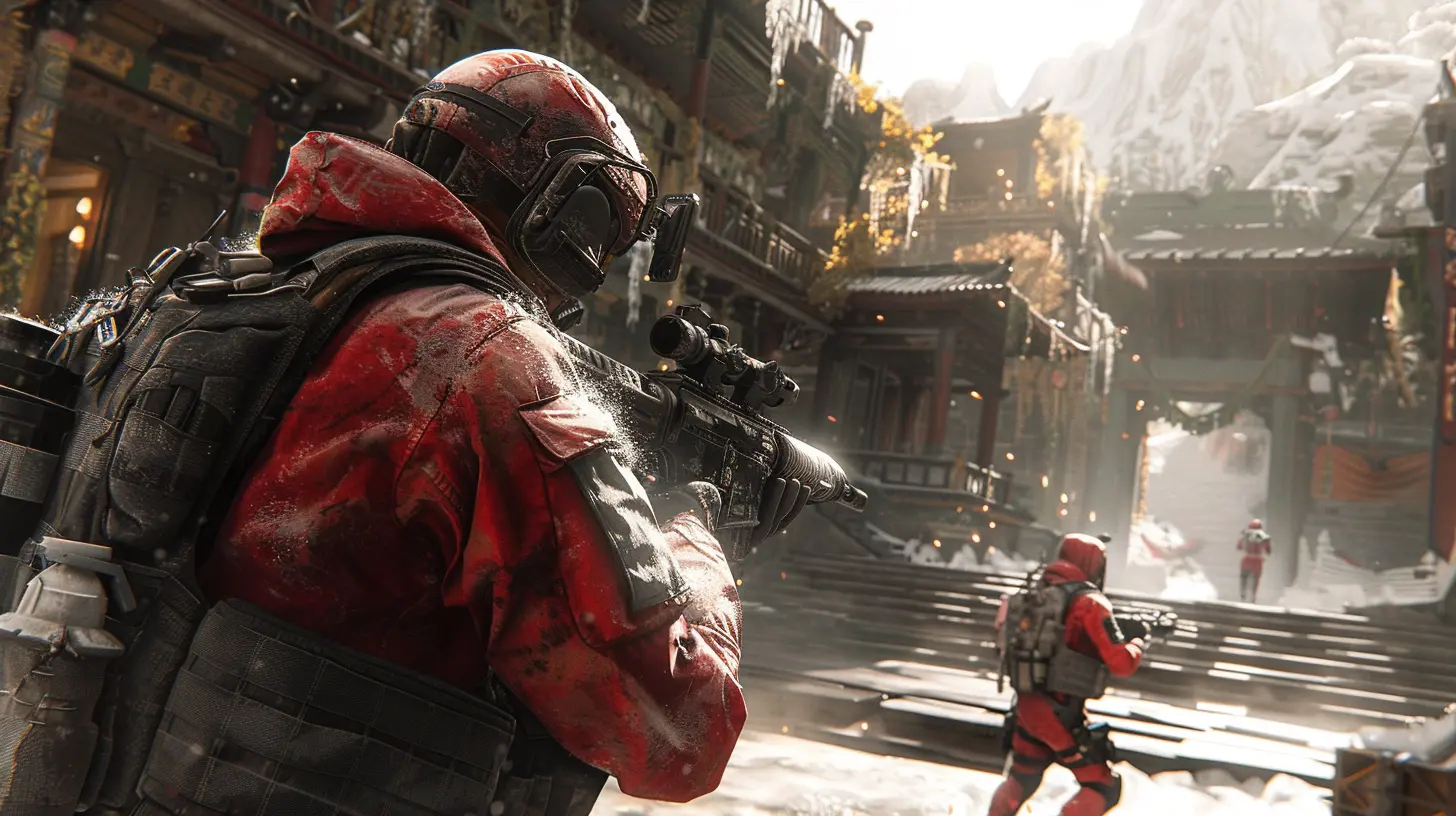
The Psychology of Roles: Why We Gravitate to Certain Playstyles
Ever wonder why some players instantly pick “Tank” while others flee to “DPS” or “Support”? It’s not just game mechanics—it’s psychology.Roles and Personalities
Your in-game role often reflects your personality:- Leaders love being Tanks or Captains. They thrive on guiding the team and taking charge.
- Solo performers lean toward DPS (damage-per-second) roles. They want to shine by doing what they do best—taking out enemies.
- Caregivers find comfort in Support roles. They enjoy boosting teammates and ensuring everyone's survival.
These choices also tie back to real-life social dynamics. In a way, games are like a sandbox where we express who we are.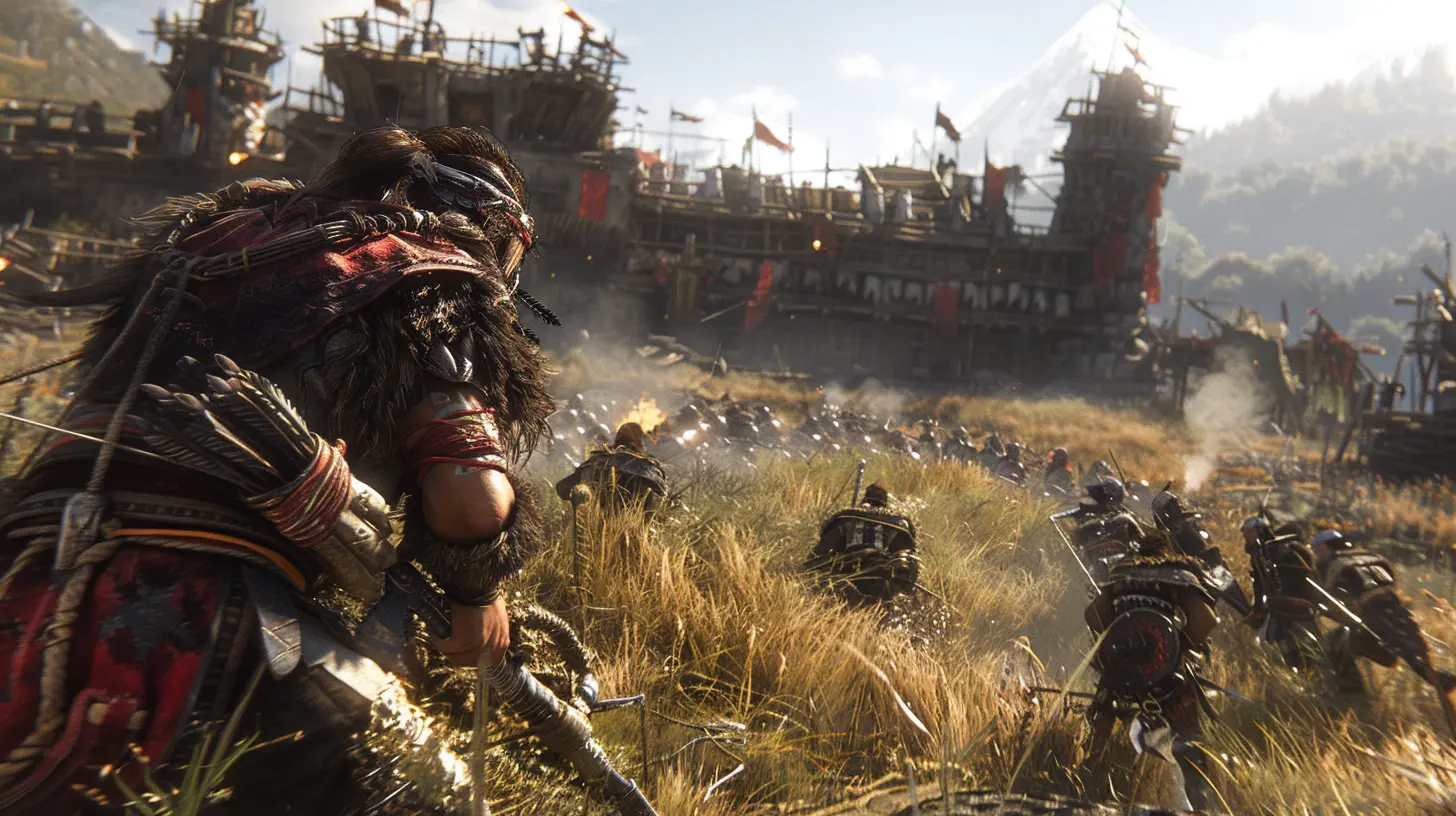
The Thrill of Collaboration: Why Strategy Is So Addictive
At the heart of team-based games is one big draw: strategizing as a unit. Planning your next move, predicting the enemy's strategy, and executing a flawless play—it’s exhilarating. But there’s a psychological reason why those moments stick with us.Dopamine Hits
When you pull off a killer strategy, your brain rewards you with a burst of dopamine. That’s the same “feel-good” chemical you get from eating chocolate or finishing a big project. The best part? Multiplayer games deliver this over and over again, keeping you hooked.Trust and Dependence
Team-based games teach you to rely on others. Trusting your teammates to watch your back or play their role correctly builds a sense of interdependence. And when trust pays off, it strengthens the bond between players—even strangers.Competition: Why Teams Bring Out the Best (and Worst) in Us
If you’ve ever screamed at your screen during a hotly contested game of Rocket League, you know what I’m talking about. Competition is at the heart of most multiplayer games. It’s why they’re so thrilling—and maddening.Friendly Rivalry
Competition taps into our natural desire to prove ourselves, but in a team-based game, it’s different. You’re not just playing for yourself; you’re playing for the whole squad. That shared responsibility ups the stakes and makes victories feel infinitely more rewarding.The Dark Side of Competition
Of course, the flip side of competition is frustration. When things go south, it’s easy to point fingers or lose your cool. But even that frustration can be a bonding experience, especially when the team comes together for a redemption arc in the next round.The Rewards of Team-Based Play: Why We Keep Coming Back
So, what makes us queue up for another round of Valorant or Apex Legends even after a crushing defeat? It’s the broader emotional rewards that keep us coming back:1. Personal Growth
Team-based games teach patience, adaptability, and leadership. They force us to learn from our mistakes and grow, both as gamers and as people.
2. Memories and Stories
Some of the best gaming moments come from multiplayer games. Remember that one time your squad clutched the game right before overtime? That becomes a story you’ll tell for years.
3. Genuine Friendships
Team-based games forge connections. It’s not uncommon for gaming buddies to turn into lifelong friends—or even more.
Wrapping It Up
The psychology of team-based play in multiplayer games isn’t just about the mechanics or the graphics. It’s about human connection at its core. These games tap into our primal need to work together, compete, and belong. They create spaces where trust, strategy, and camaraderie shine—and sometimes, where chaos reigns. But isn’t that what makes them so much fun?Next time you queue up with your squad, take a moment to appreciate what’s happening behind the scenes—not just on your screen, but in your brain too. Who knew gaming could be this deep?
all images in this post were generated using AI tools
Category:
Multiplayer GamesAuthor:

Tayla Warner
Discussion
rate this article
3 comments
Rex Strickland
Great insights on team dynamics in multiplayer games! Understanding player psychology can truly enhance the gaming experience for all.
June 12, 2025 at 4:38 PM

Tayla Warner
Thank you! I'm glad you found the insights valuable—understanding player psychology is indeed crucial for enhancing team dynamics in gaming.
Matteo Bowman
This article beautifully captures the essence of teamwork in multiplayer games. It’s fascinating how the dynamics of collaboration and strategy can shape player psychology. Understanding these elements not only enhances our gaming experience but also fosters stronger connections within our gaming communities. Great insights!
June 10, 2025 at 2:40 AM

Tayla Warner
Thank you for your thoughtful comment! I'm glad you found the insights valuable and that they resonate with your experiences in gaming communities.
Felix McLaurin
Teamwork: where 'I got your back' often means 'I need coffee!'
June 9, 2025 at 5:00 AM

Tayla Warner
Absolutely! Teamwork can be both supportive and humorously exhausting. Coffee fuels our collaboration, highlighting the balance between camaraderie and the challenges of working together in intense gaming environments.
